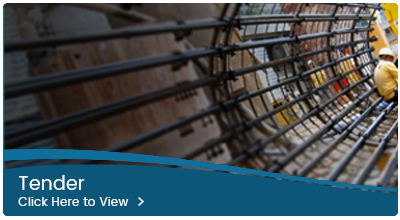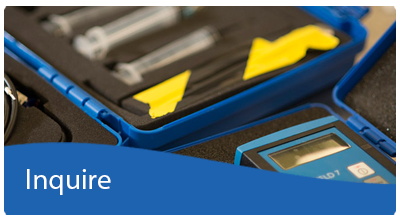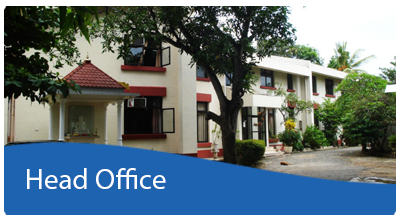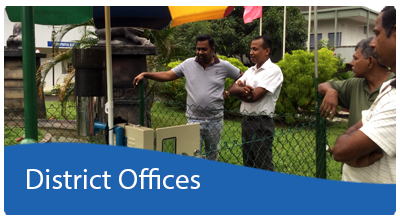National Building Research Organisation (NBRO) operating under the purview of Disaster Management Division of the Ministry of Defence, stands as a premier institute reputed for its work related to research, development, technical consultancy and testing services. Equipped with a skillful staff inclusive of many geologists, it is also the pioneering institute for landslide research and risk management in the country to date, and the Landslide Research & Risk Management Division (LRRMD) has been the powerhouse and driving force behind NBRO in the endeavor. Amongst the multiple tasks performed by NBRO in this regard are landslide hazard zonation mapping, field investigations, issuance of early warning, creating awareness, developing safe construction guidelines, landslide risk mapping, land-use planning, policies development and structural mitigation of landslides. In addition, the LRRMD also provides the unique service of performing all kinds of landslide investigations/risk assessments and issuing clearance for construction/development plans in landslide prone areas.
Over the last two decades, landslides have become the most prominent hazard in the central highlands of the country bringing about huge life and property losses. As a result, role of NBRO has become increasingly important, and the growing workload has made NBRO feel the need for an easily manageable, operational and documentation system. To cater the said requirement, an Information Management System by the name of LIMS (Landslide Information Management System) has been recently developed by the LRRMD. The system development was funded by JICA under project SABO which is a technical cooperation with the NBRO. The LIMS system which has already been implemented and in use, provides a digital platform that assists landslide inspection efforts by NBRO head office and ten district offices located in fourteen landslide-prone districts of Sri Lanka. Recently, many institutes have made great strides in removing or at least reducing the use of paper from their work-environment and the LRRRMD hopes to do the same with the help of LIMS. All the processes of the Inspection body from receipt of customers’ inspection requests to issuance of the inspection report are now facilitated electronically through the LIMS. It is helping LRRMD to streamline and accelerate its inspection system processes by making document and information access faster and easier, while cutting down time and money spent on document edition, redistribution, approval cycles, printing and storage spaces.
LIMS also facilitates detailed databases to input massive load of about 120,000 past landslide records in possession of NBRO, while ensuring the safekeeping of data and confidential information. This allows convenient data search options for research and progress monitoring, and an irrefutable track record for key decision making. Another important change brought about by LIMS is refining the decision making process associated with inspection work which was formerly dependent upon purely subjective qualitative judgement, into a more consistent semi-quantitative system by introducing necessary guidelines and criteria. The ultimate objective of LIMS is turning the LRRMD workspace into a smart office from which people can obtain hassle-free service without unnecessary delays, all while being at the comfort of their homes.
Furthermore, LRRMD is taking another step forward in elevating its inspection services, by seeking accreditation status from Sri Lankan Accreditation Board (SLAB) under ISO/IEC 17020:2012 standard for operation of various types of bodies performing inspections, the applicable standard for landslide risk assessment activities performed by the LRRMD. Accreditation is considered a reliable indicator of technical competence both nationally and internationally. Becoming accredited for its inspection activities will allow LRRMD to level up to recognized international standards. Amongst the benefits would be better recognition, enhanced professional and legal credibility, improved performance and smooth systematic operation of the Inspection Body. Over the years, customers from both private and state sector organizations has sought LRRMD inspection services based purely on trust and reputation with virtually no marketing or advertising strategies. Obtaining accreditation status will further assure LRRMD customers that the inspection reports supplied by the inspection service are transparent, punctual, impartial, accurate, and consistently reliable. With this added advantage of LIMS, the staff of LRRMD is now better equipped to serve inspection duties and dedicatedly working towards obtaining ISO/IEC 17020:2012 accreditation status within the year, so as to provide standardized first-rate inspection services of finest quality to its customers of state and private sectors.
Written By:
Ms. E.J.M.P.H. Jayasundara (Geologist)
Landslide Research & Risk Management Division
National Building Research Organisation
























